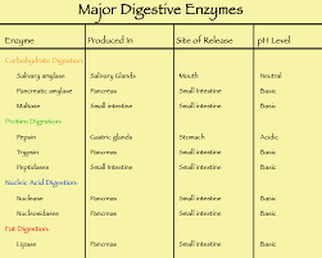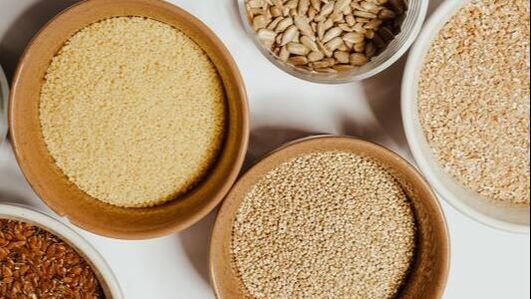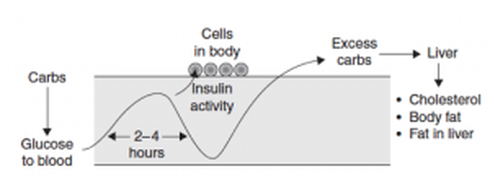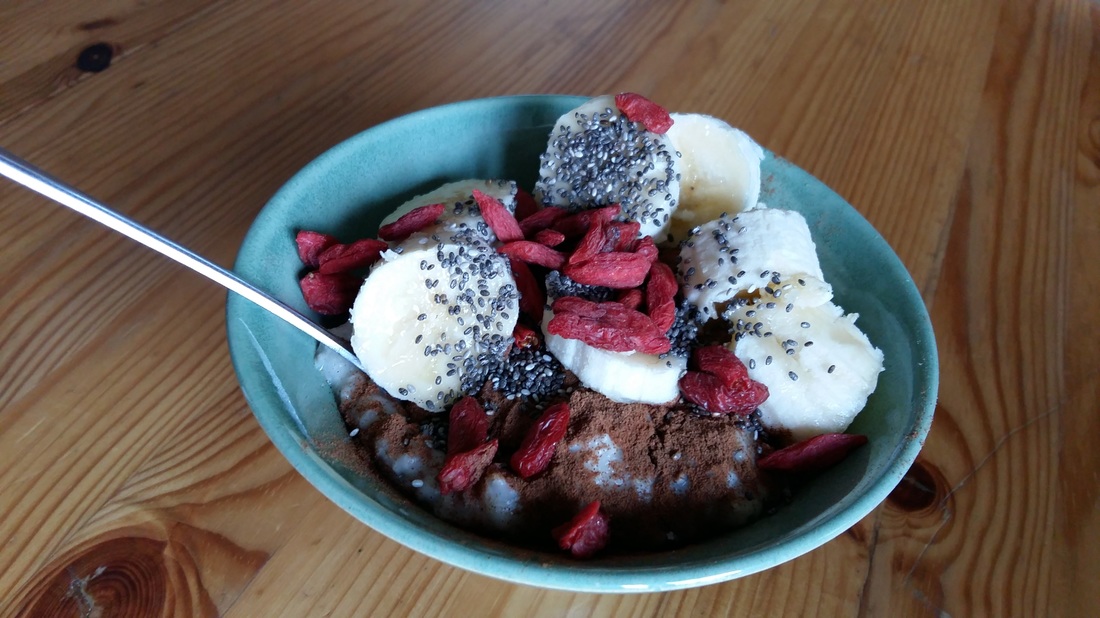Fatigue
Sleep Issues
Headaches or Migraines
Anxiety or Deppression
Nervousness
ADD
Candida
Skin rashes
PCOS or Fertility Issues?
Blood sugar balance is a good place to start, even if you are within good range at the doctors office, you may still feel the effects of blood sugar imbalance through out the day. A high glycemic meal (sugars from refined carbohydrates digest too quickly and need to be ushered into the cells by way of increasing insulin) or waiting too long between eating, or even eating too much of a good thing, like copious amounts of healthy whole carbs, can catapult us into increase insulin production with our cells being over burdened with food (glucose) and becoming insulin resistant.
When blood sugars dip, after a big spike in insulin or waiting to long between meals, our body produces more cortisol to help restore blood sugar levels. This is why so many people experience highs and lows of energy after they eat or the long gap between eating.
The effects of the raised insulin and cortisol levels perpetuate a vicious cycle and push the imbalance further from healthy center. Sugar cravings for the immediate energy need, weight gain, stress, and inflammation can, in a lot of cases, be associated to blood sugar imbalance.
Lets look at the 3 main components of food; fat, protein, and carbohydrates.
They are all equally important in the diet and need to be tended to in different ratios in different genealogies, and individuals so I will not state here what macronutrient ratios might be best for the masses. But we can clearly see that refined grains are damaging to health.
Foods that are primarily made of carbohydrate are;
Bread
Pasta
Cereal
Grains in general (quinoa, oats, millet, corn, spelt, kamut)
Rice
Fruits
Vegetables
Sugar, (whether it is white or brown) is also a complete carbohydrate, called sucrose, as is the sugar in dairy milk is, lactose.
What happens when we eat Carbohydrate?

Foods like simple carbohydrate will likely raise your blood sugar levels quickly. Simple carbohydrate are things like sugar, processed grains that are stripped away of their fibre like white bread, white rice, crackers, pastas, cookies, ect.
When blood sugar goes up quickly you might feel agitated or sleepy, then you are more likely to feel the effects of a rapid drop in blood sugar, feeling irritable (hangry), light headed, nauseated, foggy, lack of focus, or get headaches. This happens because you have an amount of glucose that has been delivered to the bloodstream is ready to be ushered into the cells by way of insulin, once in the cell it is converted to energy for your body and brain to use. If the amount of glucose in the blood exceeds what insulin can usher in to the cells, the body will respond first with the pancreas making more insulin. If this continues as a regular pattern, the cells will become less responsive to it, becoming insulin resistant leaving glucose to circulate in the blood. It doesn't circulate for long though, it soon finds it's way to the liver where it is stored as glycogen (glycogen is used when your blood sugar drops as a reserve). When your liver is at maximum capacity for glycogen stores it spills over and is converted to fat that is stored around your belly, hips and thighs, as well as around your vital organs, or converted to excess cholesterol in the blood. That's right, not all cholesterol is animal sourced, it depends on your diet and what you body does with it.
By eating carbohydrate that still have their fibre intact, whole grains, most vegetables, and fibreous fruits like apple and pears, can slow the the digestion of sugars. Even better is pairing these items with small amounts of proteins, fat, or additional fibre for better blood sugar stabilization over longer periods of time.
The time from eating something and having your insulin rise and then fall again is somewhere between 2 and 4 hours depending on what has been eaten and ones own metabolism. So it is important to eat complex carbohydrate as they fuel your body, and your brain more over runs on glucose.
If your body's glucose stores run low, you body will break muscle down to obtain the glucose as opposed to taking it from fat store.. As it is important to include high quality carbs in your diet, it is just as important to not take in more than you are using.
The balance is exactly that, balance and a few different things can throw this process off track;
~If you eat too little or infrequently, like skipping breakfast, going too long in-between meals, or skipping meals altogether, can cause dips in energy increasing circulating cortisol (stress hormone) and increase muscle loss.
~ If you eat too much too often this can lead to higher blood sugar, higher insulin, possible insulin resistance, and weight gain, timing is key.
~Stress and high cortisol can affect insulin functioning properly making it more likely that you will gain weight in the midsection.
~Leaky gut and gut dysbiosis (bacterial imbalance) can also lead to insulin resistance and more likely weight gain.
All of these things can create the downward spiral of optimal health, for instance decreased insulin function and increase circulating blood sugars can lead to increase fat storage, fat cells store inflammatory mediators, inflammatory mediators produce pain and swelling, and pain and swelling reduces insulin's effectiveness even further.
Even if you think your blood sugar is fine, or your Dr. says you are within normal range during a glucose fasting test, you might find that when you become aware of how you feel after you eat and in-between, you are likely to increase your energy, start having success with sticky weight, better overall energy, clearer thinking, happier mood.
Here are my simple suggestions to help stabilize your blood sugar;
Keep a food diary, mark it in your phone, on a calendar, a book you keep near your bed. Something, anything, just note everything you eat, and how you feel that day. For an easy log please visit the resource page and print out a few “Food and Mood” trackers for your convenience.
Now it's time to start trimming, look at the refined sugars and carbohydrates you are eating, are they refined, can they be switch to whole grains and natural sweeteners. This is the time to clear the pantry of cookies, boxed cereals, crips, crackers, white pasta, white rice, white bread, see a pattern...
Get breakfast in order, add healthy fibres to your diet and then mindfully start removing the offenders, with each shopping trip replacing whole foods with health damaging packaged products..Without breakfast and fibre foods as a routine, you will not have great success with clearing out the crap, and I truly want you to succeed!! Everything after this will be much easier to achieve! I promise!!
Make sure you have a 4 o'clock snack, to many of my clients eat 3 healthy meals a day but are being held back form their goals with what is usually an easy fix, this is my biggest suggestion of small change with big results.
Between breakfasts and lunch there is usually only 4 hour in between, but from lunch to the time they work overtime, check kids are doing homework, stop at the store for a few ingredients on the way home and then cook a homemade meal..... it's usually 7 hours after lunch! Waiting this long doesn't help if you are trying to be mindful of your portion sizes and definitely doesn't help blood sugar regulation, pushing those cortisol levels up just in time for the commute home, at that point ready to eat anything and everything!!!
A small healthy snack at 4 will curb the hours without nourishment helping to stabilize blood sugars, helping to make better decisions at the grocery store, in the kitchen, servings on the plate, and mood.
Include more healthy fats in the diet, it may seem counter-intuitive to eat more fat if you are looking to lose weight but the inclusion of omega 3 containing foods like flaxseeds, walnuts, chia seeds, and wild salmon if you eat it, will make you feel full for longer, help stabilize blood sugars, and satisfy your brain chemistry.

No healthy lifestyle is complete without inclusion of some exercise, exercise has been shown to not only increase mood and decrease stress, but it has been studied greatly in the effects of stabilizing blood sugars. Studies show that exercising as little as 20 mins per day over a 2 week period can lower circulating blood sugars by 20 percent.
Find something you enjoy to do, engage in it regularly, and watch the swings come into balance with these 8 easy steps..
If you want a more focused plan, with tips for success, meal plans, shopping lists, diet analysis, and feedback, please feel free to contact us here at Wild Seed Holistic Health. We want to guide and empower you on your way to optimal wellness!



